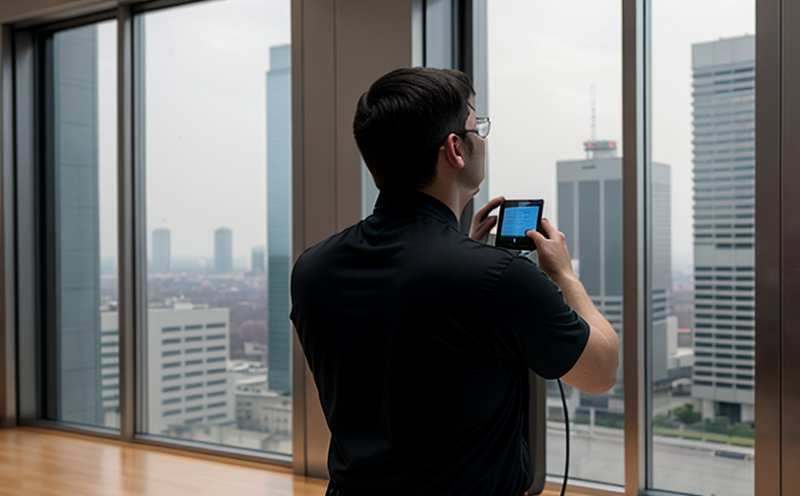Evaluating Gas Sensor Response Time in Dynamic Air Quality Environments
Evaluating Gas Sensor Response Time in Dynamic Air Quality Environments Unlock the Secrets to Reliable and Accurate Monitoring
In todays fast-paced world, maintaining a healthy indoor air quality (IAQ) is no longer just a luxury but a necessity for businesses of all sizes. With the increasing awareness about indoor pollutants and their impact on productivity, employee well-being, and brand reputation, companies are under pressure to ensure their facilities meet the highest standards of IAQ. One crucial aspect of achieving this goal is evaluating gas sensor response time in dynamic air quality environments.
At Eurolab, our team of expert scientists and technicians offers a specialized laboratory service designed to help businesses optimize their gas monitoring systems and ensure accurate detection of pollutants. In this article, well delve into the importance of Evaluating Gas Sensor Response Time in Dynamic Air Quality Environments, highlighting its benefits, advantages, and applications.
Why is Evaluating Gas Sensor Response Time in Dynamic Air Quality Environments Essential?
Gas sensors play a vital role in monitoring indoor air quality by detecting pollutants such as CO2, NOx, VOCs (volatile organic compounds), and particulate matter. However, the accuracy of gas sensors can be compromised by various factors, including
Response time Gas sensors may take too long to respond to changes in pollutant levels, leading to delayed detection or inaccurate readings.
Interference from other gases Sensitivity to interfering substances can affect sensor performance and accuracy.
Temperature and humidity fluctuations Environmental changes can impact gas sensor calibration and response time.
To overcome these challenges, businesses must evaluate their gas sensors response times in dynamic air quality environments. This process involves assessing the sensors ability to detect pollutants under real-world conditions, taking into account various environmental factors that may influence its performance.
Advantages of Evaluating Gas Sensor Response Time in Dynamic Air Quality Environments
Our laboratory service offers numerous benefits for businesses looking to optimize their gas monitoring systems
Improved accuracy By evaluating gas sensor response time, you can ensure accurate detection of pollutants and avoid false alarms.
Enhanced reliability Our expert analysis helps identify potential issues with your sensors, reducing downtime and increasing overall system reliability.
Increased productivity With reliable and accurate monitoring, you can optimize IAQ levels, improving employee comfort and well-being while boosting productivity.
Cost savings By minimizing false alarms and sensor replacement costs, our service helps you save resources in the long run.
Compliance with regulations Regular evaluation of gas sensors ensures compliance with relevant air quality standards and regulations.
Key Benefits
Here are some key benefits of using Evaluating Gas Sensor Response Time in Dynamic Air Quality Environments
Timely Detection of Pollutants Our laboratory service helps you detect pollutants promptly, reducing the risk of exposure to hazardous substances.
Enhanced Data Accuracy By evaluating gas sensor response time, we ensure accurate readings and prevent data discrepancies that can compromise decision-making.
Increased System Reliability Regular analysis of gas sensors enables us to identify potential issues before they become major problems, ensuring your monitoring system runs smoothly.
Reduced False Alarms Our expert evaluation helps minimize false alarms, saving you time, resources, and reducing stress levels.
Improved Employee Comfort and Well-being With accurate monitoring and reliable detection of pollutants, you can maintain a healthy indoor environment, promoting employee comfort and well-being.
QA Section
We understand that you may have questions about our laboratory service. Here are some frequently asked questions
Q What types of gas sensors do you evaluate?
A We evaluate various types of gas sensors, including CO2, NOx, VOCs (volatile organic compounds), and particulate matter sensors.
Q How long does the evaluation process take?
A The duration of our laboratory service varies depending on the type of sensor and the complexity of the analysis. Our expert team will provide you with a detailed timeline upon request.
Q Do I need to send my gas sensors to your laboratory for evaluation?
A Yes, we require physical access to your gas sensors for thorough evaluation and testing. Well handle transportation and storage safely to ensure their integrity.
Conclusion
Evaluating Gas Sensor Response Time in Dynamic Air Quality Environments is a critical aspect of maintaining reliable and accurate monitoring systems. By partnering with Eurolab, you can trust our expert analysis to identify potential issues with your gas sensors, ensuring timely detection of pollutants, enhanced data accuracy, increased system reliability, reduced false alarms, and improved employee comfort and well-being.
Dont compromise on indoor air quality choose the best laboratory service for evaluating gas sensor response time. Contact us today to learn more about our services and schedule an evaluation for your gas monitoring systems.




